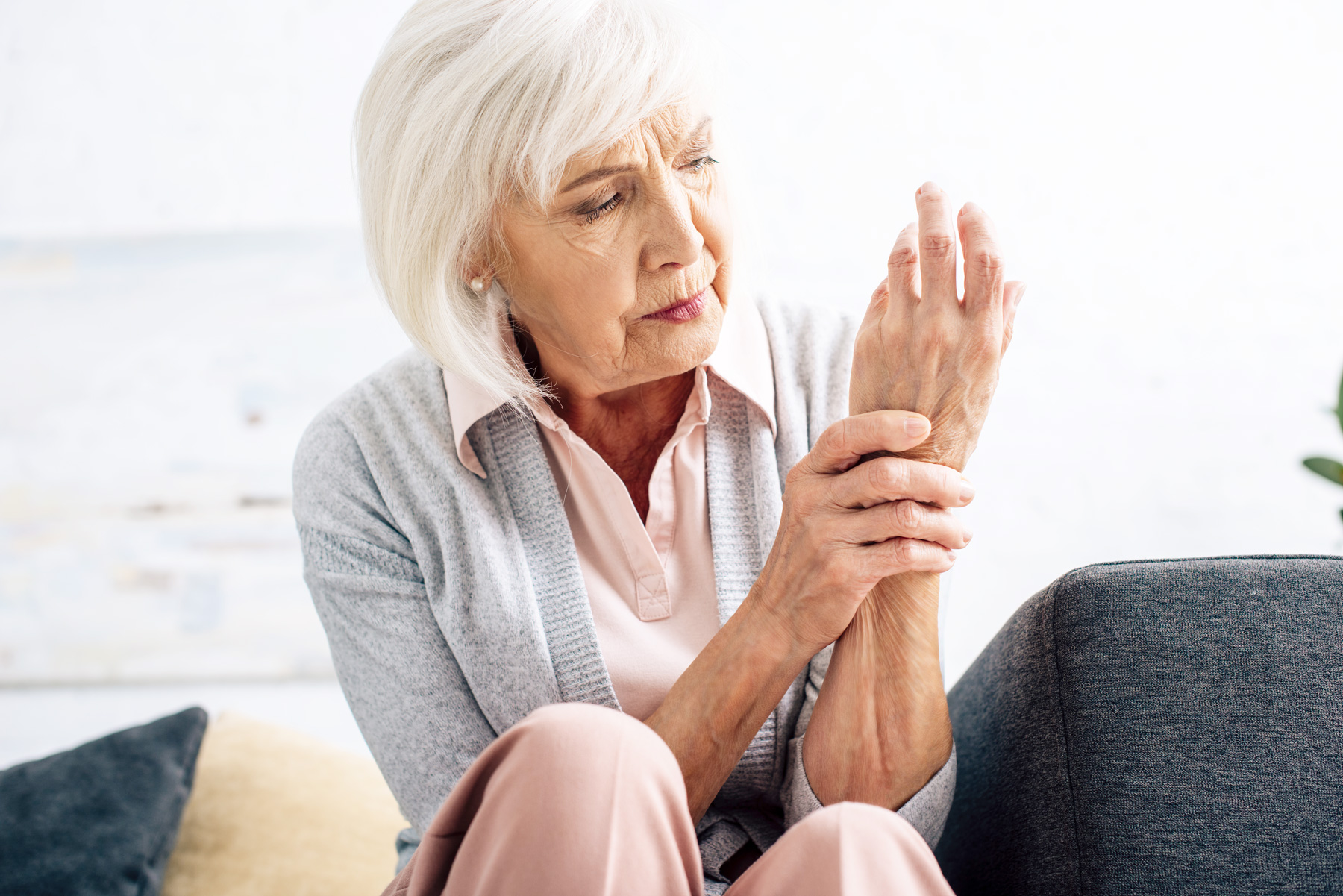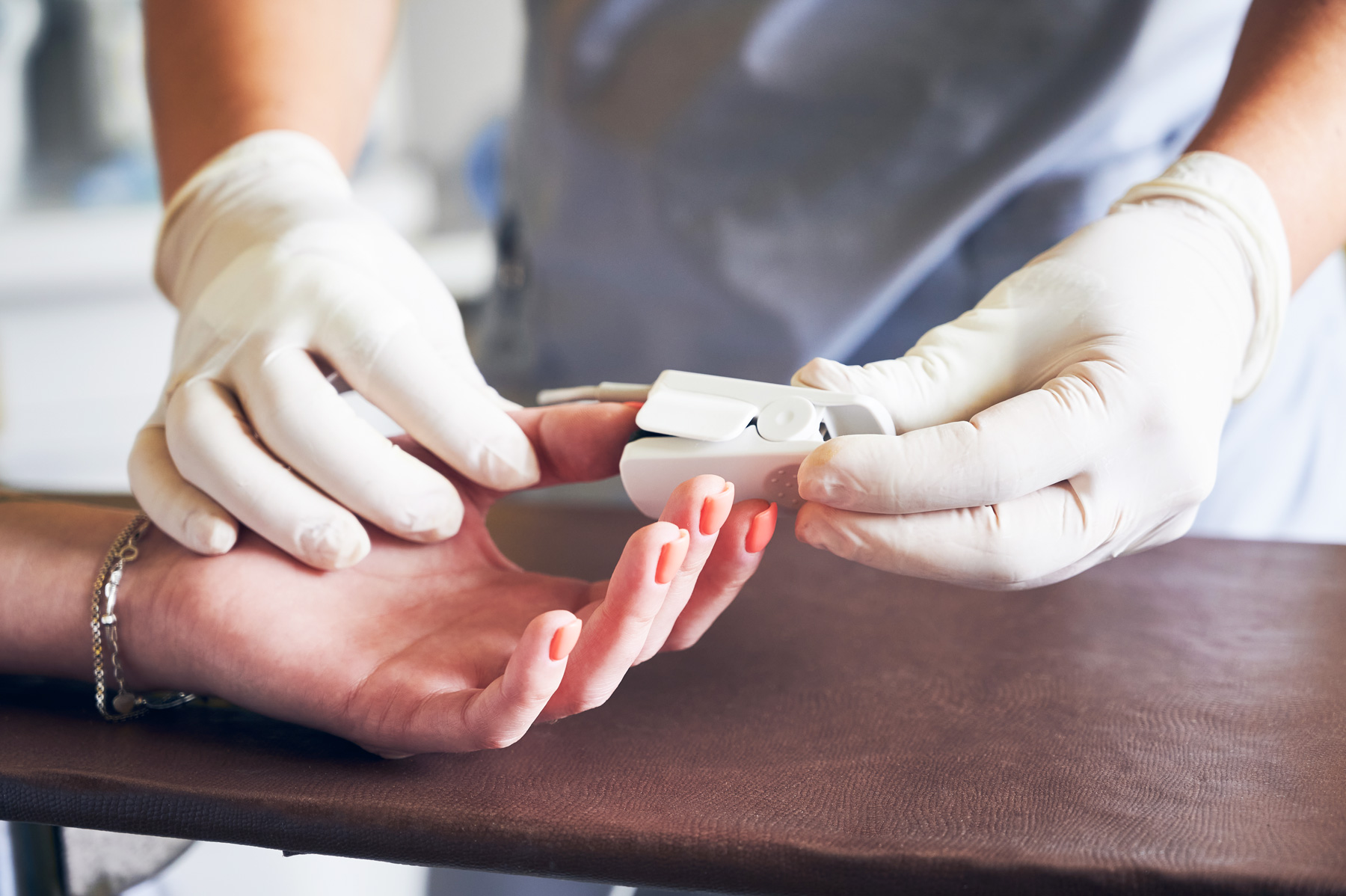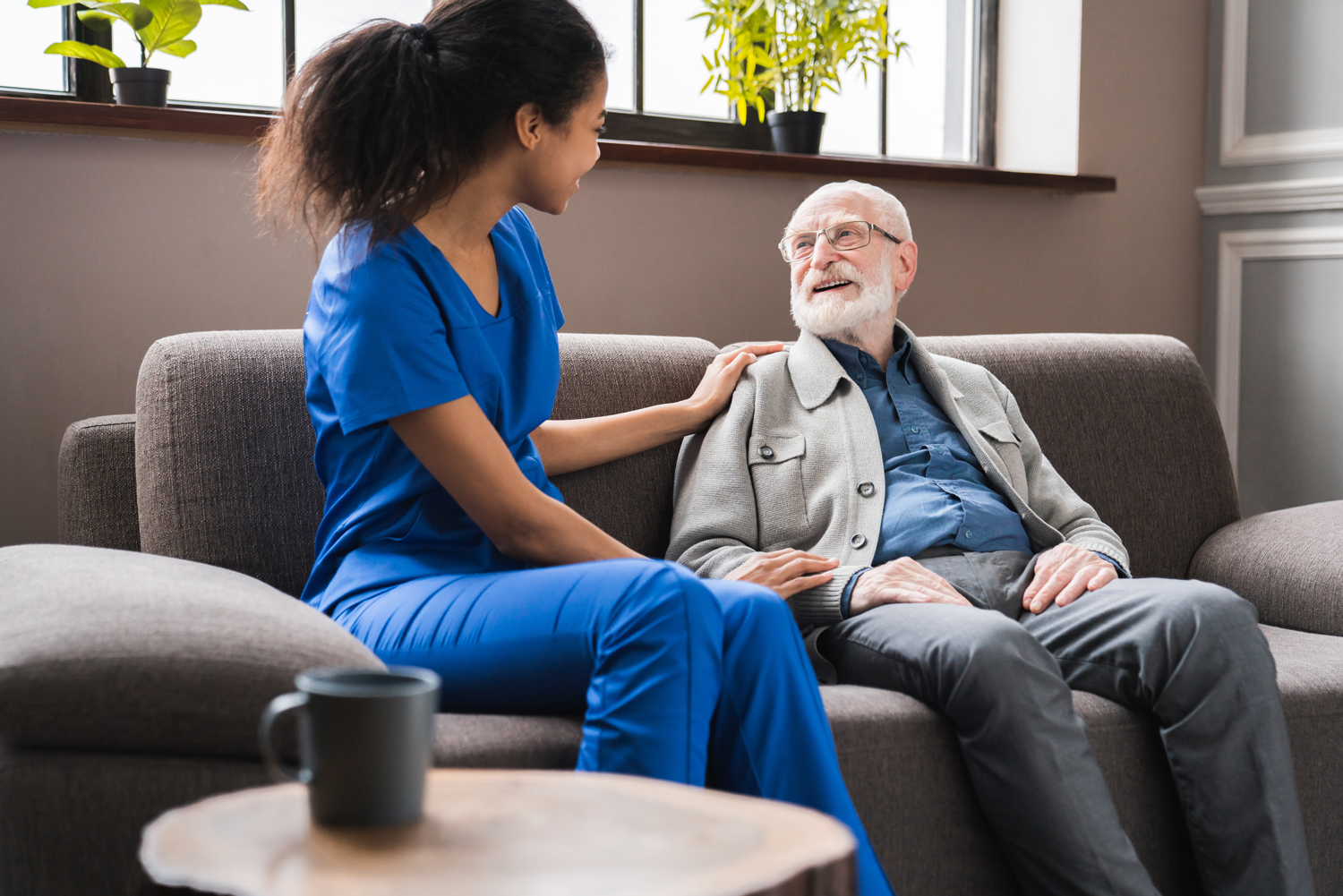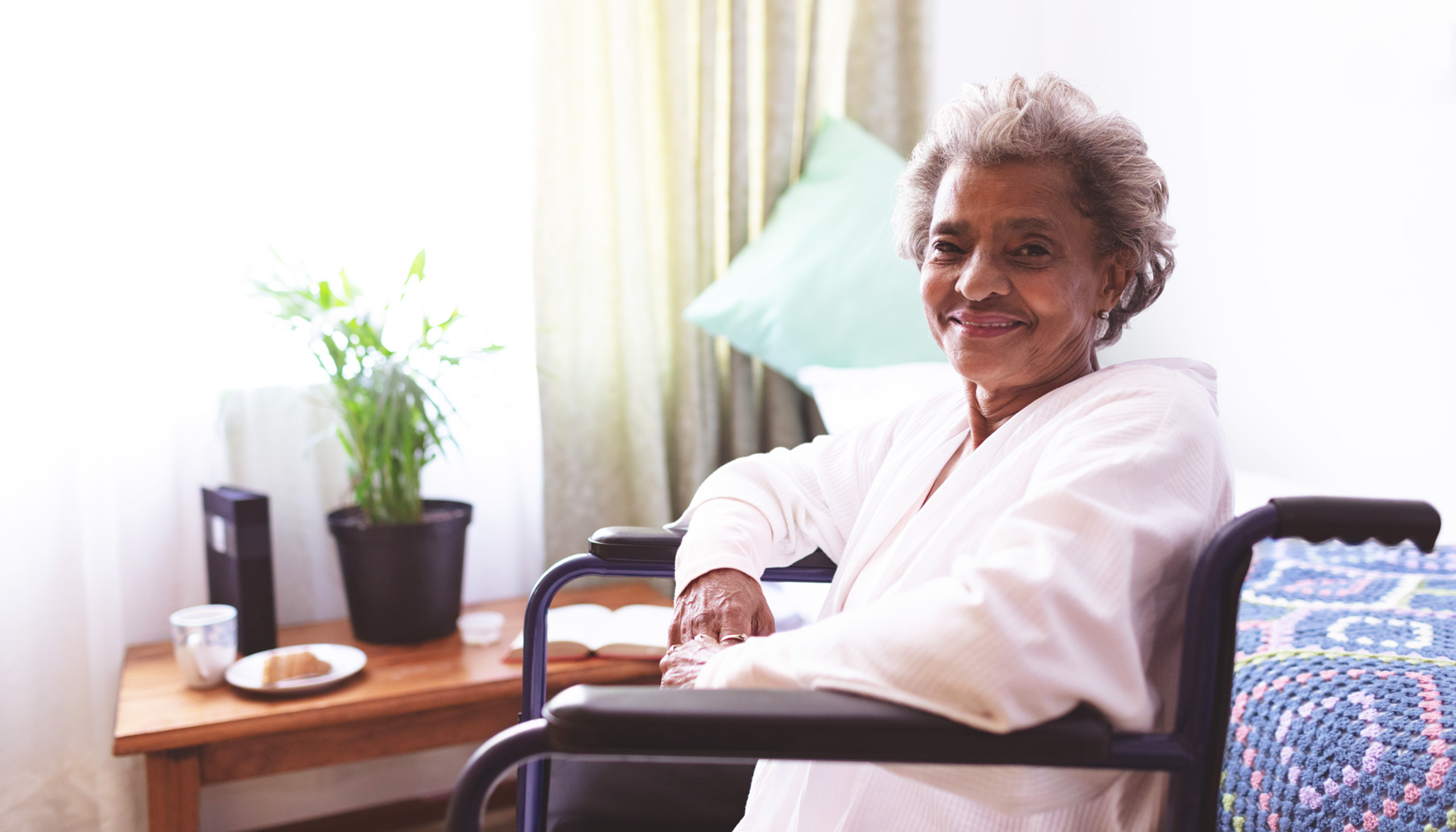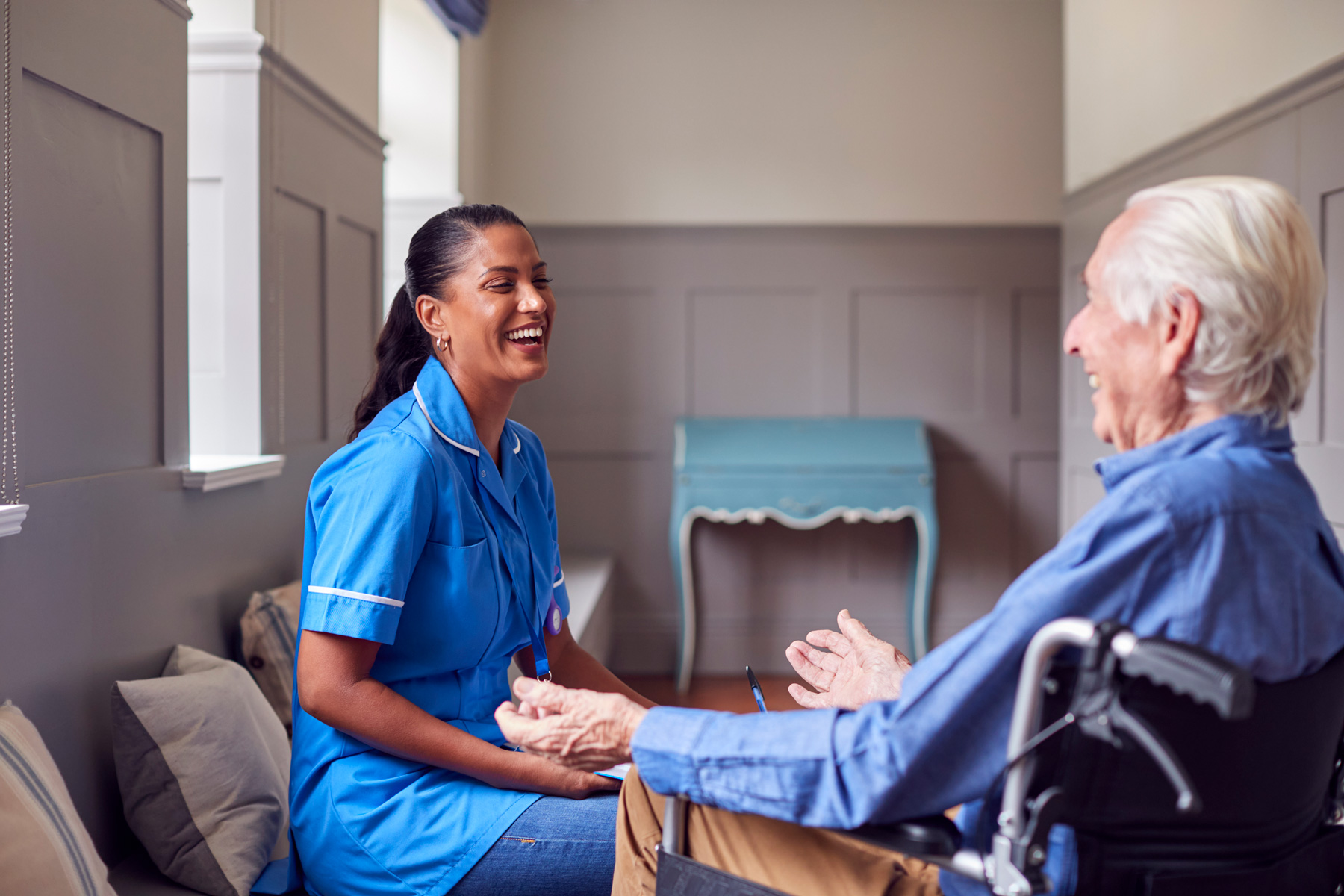

A stroke occurs when the blood supply to part of the brain is cut off. This is commonly caused by a burst blood vessel or a blood clot that blocks the flow of blood to the brain. Around 150,000 people in the UK each year experience a stroke. It can happen to anyone at any age. However, those aged 65 years or older make up 75% of all cases. While strokes are 25% more likely in men than in women, more women suffer from strokes due to them living longer. A number of factors can increase the risk of a stroke, such as family history, diabetes, obesity and high blood pressure.
There are two different types of stroke. The most common type is called an ischaemic stroke; this is caused by a blockage cutting off blood supply to the brain. However, bleeding in or around the brain can also cause a stroke – this is referred to as a haemorrhagic stroke. This is far less common and only accounts for 15% of all strokes, but the mortality risk is greater than with an ischaemic stroke. Additionally, you can suffer from a Transient Ischaemic Attack (TIA). The effects of a TIA are very similar to those of an ischaemic stroke, but only last a few minutes or hours and normally disappear totally within 24 hours. After suffering a TIA there is a 20% risk of a major stroke occurring in the first 4 weeks following the initial stroke. Rapid medical attention after a TIA can minimise the risk of a further stroke by 80%.
Each individual case will be different depending on the area of the brain and the severity of the damage. However, the most common symptom of a stroke is sudden weakness, numbness or loss of use of the face, arm or leg – most often on one side of the body. Other symptoms include difficulty speaking or understanding speech, confusion, trouble seeing with one or both eyes, acute headache with no known explanation, lack of coordination, dizziness or difficulty walking and fainting or unconsciousness. These symptoms are caused by an absence of oxygen and nutrients to the brain, caused by the interruption of the blood supply to the brain that characterises a stroke; this results in damage to the brain tissue. Half of stroke survivors are left with disabilities that require support with aspects of daily living. However, with the right reassurance, support and rehabilitation stroke victims can swiftly regain independence, and begin to navigate more confidently the daily challenges suffering a stroke can bring.
Advance understands that caring for a loved one who has suffered a stroke can be a very stressful time. That is why we train our team members to minimise the disruption caused by a stroke by providing the support family, friends and sufferers need to help them cope. Our services are people-centred and revolve entirely around the specific requirements of the individual. This approach enables our support assistants to deliver the medical, emotional and physical support their clients need in familiar surroundings, and around their established routines – which has an enhanced effect on rehabilitation and quality of life.
Our support assistants are specifically trained to provide stroke aftercare and support. They offer assistance ranging from help around the home to more sensitive issues. From meal preparation and household chores to helping with personal care – such as toileting, bathing and continence care – we are there to carry out all the practical care aspects with empathy and discretion, giving family and friends the opportunity to spend significant periods of quality time with their loved one in between.
Our support assistants are also there to offer emotional support, companionship and encouragement.
They understand that while helping their clients with the medical aspects of a stroke or assisting with practical duties such as shopping and laundry is important, so is chatting about shared interests and creating a comfortable relationship with the client. This is why we ensure clients are matched with a support assistant who not only has the relevant skillset but also has a complementary personality. Our support assistants understand that an important factor of stroke rehabilitation is relearning skills, and adapting to any physical limitations. They provide a ‘can-do’ attitude, encouraging and providing physical and psychological support.
Our stroke aftercare includes:
Deciding to let a support assistant into your home for you or a loved one can be difficult. Deciding how best to support and treat the resulting issues of a stroke is something that, understandably, worries people considering homecare for a stroke patient. Our experienced friendly team members are here to explain all aspects of the stroke care and support services we offer, and provide quality, impartial advice and information.
Explore our care services.
